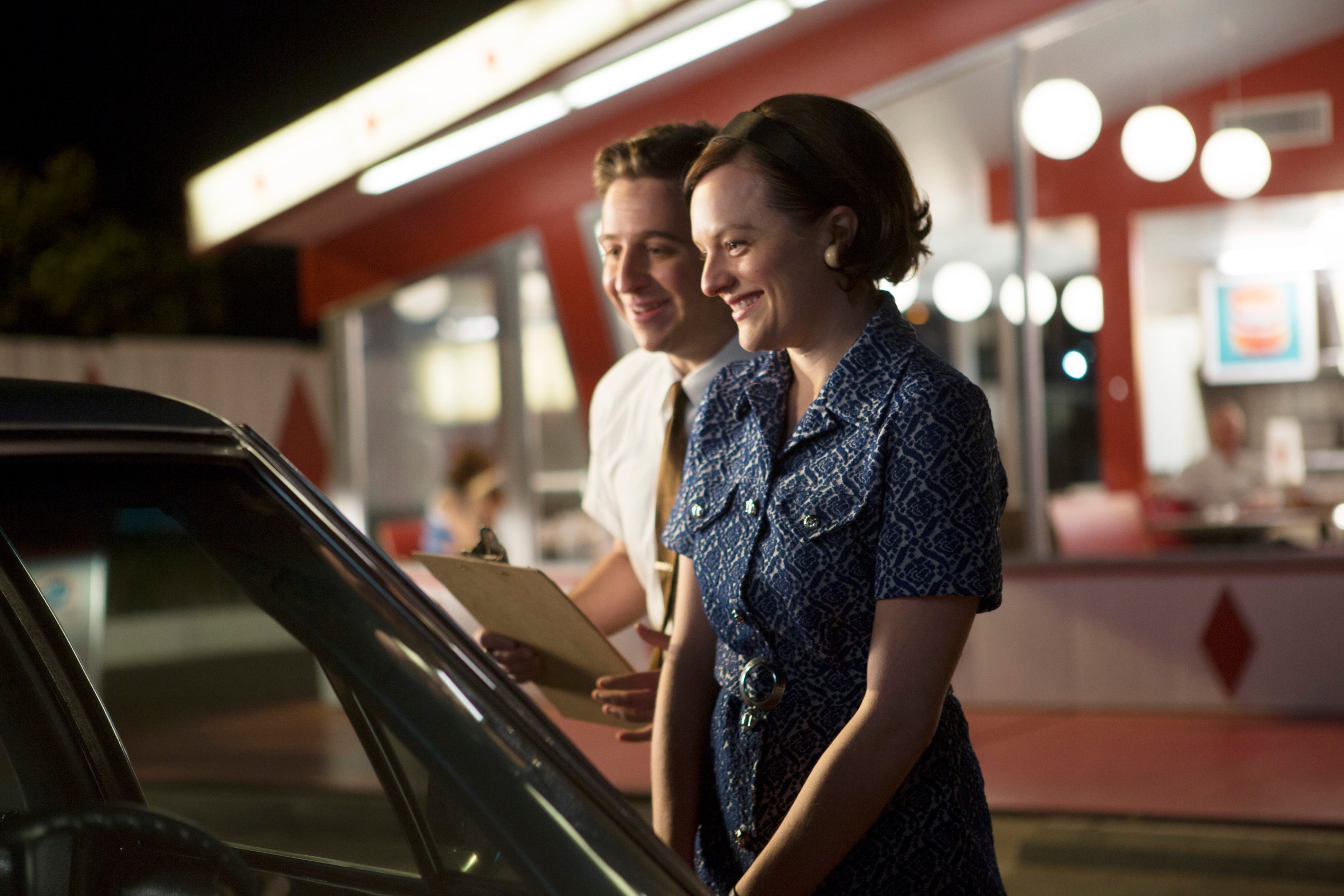
If there’s one thing that Sterling Cooper & Partners (and its earlier iterations) has a knack for, it’s landing clients that never quite reach the pinnacle of its industry. From Richard Nixon in 1960 to Mohawk airlines and the doomed Chevy Vega, Don Draper and Co. always seem a half-step behind the times. That’s never more true than in the case of Burger Chef, the firm’s latest target as well as a company that likely had the show’s younger viewers scratching their heads and Googling the fast food relic.
That the name Burger Chef is all but lost to history isn’t particularly surprising — in a world dominated by ubiquitous fast food chains (McDonald’s, Burger King, Wendy’s, etc.), even regional powers like Carl’s Jr. and Dairy Queen have some difficulty raising their profile on the national stage. Back in 1969, however, Burger Chef was very much a player in the fast food industry, and certainly a client that would bring in plenty of billings for SC&P — even if it wasn’t quite the behemoth that McDonald’s is. And if their slogan from that era (“Burger Chef goes all out to please your family”) is any indication, Peggy is certainly on the right track.
Born in the spring of 1958, Burger Chef, whose name was reportedly chosen to present the new restaurant as a more highbrow version of Burger King, got its start in Indianapolis. It was first to market what has since become a fast food staple: the burger-fries-and-drink combo meal, dubbed the “Triple Threat” and sold for just 45 cents. The chain spread quickly, with franchises opening in Des Moines and Louisiana, but Burger Chef took steps to ensure that the rapid expansion did not diminish quality. According to Flameout: The Rise and Fall of Burger Chef, the training process was a remarkably rigorous one by today’s standards: “New franchises were sent to Indianapolis to learn first-hand how to do everything from refilling catsup dispensers to conducting employee interviews to accounting. Potential employees received personality tests, and often needed to be taught how to be proper, dependable and dress neatly.”
By December 1967, Burger Chef had become the second largest restaurant chain in the entire country, trailing only the golden arches of McDonald’s. In 1969, after being acquired by General Foods a year prior, Burger Chef opened its 1,000th restaurant. (The chain would eventually peak at 1,200 restaurants two years later — just 100 fewer than McDonald’s at the time.) Though General Foods had enjoyed success with some of its other brands, including Jell-O, its management style didn’t fit particularly well with the well-developed Burger Chef culture. General Foods issued an ill-advised redesign of the logo and attempted to revive a handful of stalled initiatives that had been abandoned years prior.
If Don and co. can land Burger Chef with Peggy’s family-oriented pitch, it’ll come not a moment too soon. In the real world, McCann Erickson got the Burger Chef account (and its $2.5 million in billings) in 1968, but resigned it in 1971, when Ogilvy & Mather picked it up. By 1982, when Burger Chef was sold to Hardee’s, it had just over half of the 1,200 restaurants it had at its peak in 1971. For comparison’s sake, McDonalds had reached 4,177 restaurants in 21 countries by 1976. In 1996, the final Burger Chef franchise in Cookeville, Tenn. was converted into a “Pleasers” restaurant.
Of course, in the Mad Men world, it doesn’t so much matter what happens to a client after it’s landed — the landing is what counts. And perhaps no pitch has been so important for the show’s protagonists as this one. Either Peggy and Don will finally find a way to work together and flourish as they once did (albeit with a markedly different power structure), or SC&P will likely meet a fate similar to that of the fast food chain it so badly wishes to sign.
More Must-Reads from TIME
- Donald Trump Is TIME's 2024 Person of the Year
- Why We Chose Trump as Person of the Year
- Is Intermittent Fasting Good or Bad for You?
- The 100 Must-Read Books of 2024
- The 20 Best Christmas TV Episodes
- Column: If Optimism Feels Ridiculous Now, Try Hope
- The Future of Climate Action Is Trade Policy
- Merle Bombardieri Is Helping People Make the Baby Decision
Contact us at letters@time.com